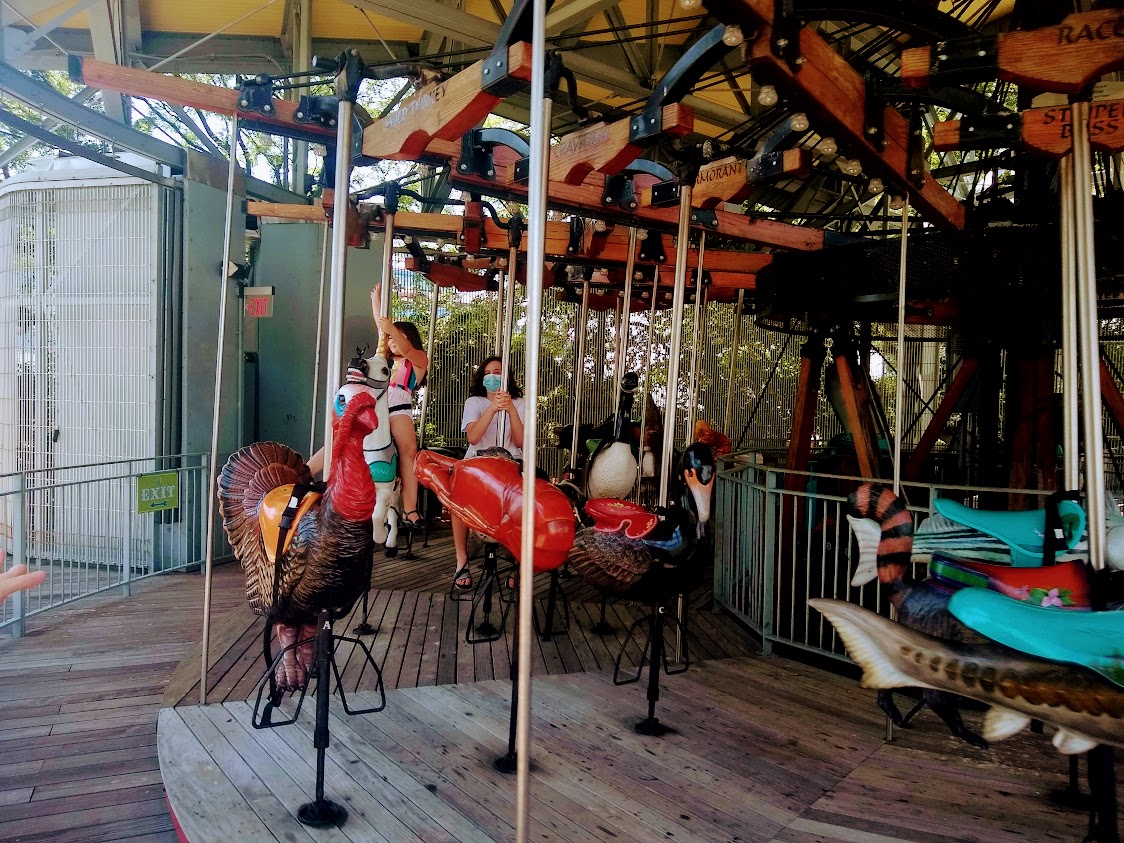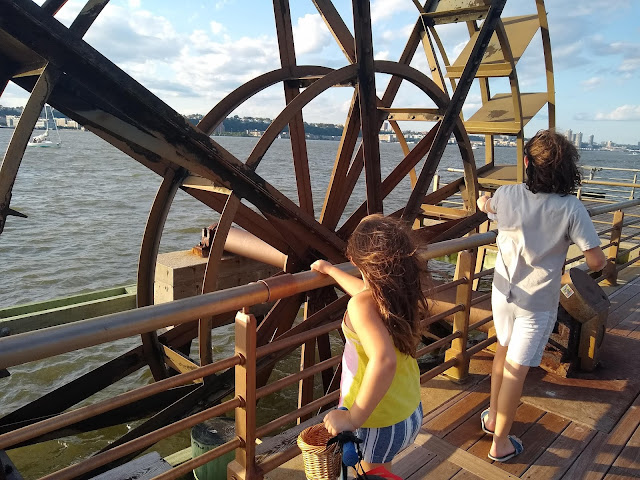It’s easy being a little bit green
I am drawn to green/eco-friendly books. Right now I have a one from the children’s section of the local library open in front of me. It's National Geographic’s True Green Kids: 100 things you can do to save the planet. It's more reassuring and optimistic than the 50 Simple Things You Can Do to Save the Earth series from the late 80s/early 90s, the mainstay of my high school environmental group. I still have those, too.
The problem, for me, with some of these environmental books,
is that instead of getting inspired when I read them, I get overwhelmed. And anxious. I
start to feel hopeless. The island of plastic in the Pacific (yes, it is out
there, and it’s huge), and the fact that the “good” light bulbs, the energy
efficient ones, have mercury and have to be disposed of properly, and the
average 3.3 tons of waste the average American family hurls into a landfill on
a yearly basis and the pelicans choking on
plastic bags and dolphins coughing up oil and polar bears slipping right off
the melting ice caps into the rising sea. It’s just like, oh God, this is
fucking awful.
Doomsday environmentalism. It’s paralyzing. Richard Louv,
author of Last Child in the Woods, talks about how kids are not going to relate
or respond to giant issues like climate change, holes in the ozone, or melting
polar ice. That we need to give them time in nature—playing in the yard,
walking through meadows, throwing stones into streams—so that they will grow
wanting to be stewards of the places they love.
Then on the other end of doomsday – you just used 59 gallons
of clean, drinkable water for that last load of laundry you did – environmentalism is the happy,
go lucky kind—making caterpillars from egg cartons. I like
that stuff. I think it’s great for school kids and craft-time, both to
raise awareness and just make re-use a habit. But faced with the realities of
extreme weather those real-life caterpillars are now or will be forced to endure, it can feel a
little remote, a little bit like playing tennis in The Garden of the Finzi-Continis.
It’s easy to lose momentum, reading about everything that
needs to be done. How are we
really going to change people’s mindsets? How will we get enough people
to care? What if Obama doesn't get re-elected? What if we deregulate factories even further? Canadians are start to burn tar sand? What are we going to do???
This kind of panic vortex threatens to swallow me whole. The answer is action.
Something small, something doable. “Every little bit counts” is the message of
lots of these books with their simple things we can do. So why not do a little
bit rather than imagining the nightmare of drastic change and doing nothing?
I’ve been reading a few books on Jewish spirituality lately,
too. And I’ve latched on to the idea that our job is to do what we can
to repair our corner of the world. Our corner. That can be our family, our
neighborhood, our community. It’s not overwhelming. It’s
graspable. Repairing our corner. That's our task.
For a long time I've resisted composting. I just can’t stand the idea of a
bucket of worms in my apartment. My Physics friend M. has a non-worm compost bin, but
I have to admit I haven’t looked into it and she has an outdoor patio, which
makes that path seem more tenable. But the truth is, I just haven’t done it. I throw banana
peels into plastic bags where they’ll never biodegrade.
Last Saturday I went for the first time down to the Farmer's Market at Abingdon Square to drop off a bag of apple cores, coffee grinds, a bunch of dirt, and orange peels. I dropped it off. The guy there was really friendly. He said you can store stuff in the freezer. I thanked him for the advice--seems obvious now. Then I walked back up 9th ave. And I felt so light. Physically light, because I
wasn’t lugging the bag. But light in other ways, too.
#
Last night after dinner I asked Wally to put some tomato stems in the bag I took out the freezer with coffee grinds, banana peels, and onion skins. He peered into it. “What about apple peels and potato peels?” he said. So he obviously has the idea about composting already
from school or TV or both. Probably Dirtgirlworld. That show is CRAZY weird but has a great environmental message.
“What will this turn into?” I asked Wally, as he flitted about looking for more stuff we could put in.
“Dirt,” he said. Obviously.
Remember, how badly Wally and
his friends want to be allowed to dig in the forbidden dirt of our neighborhood?
Kids love dirt. How cool to be able to involve them, even sort of tangentially, in this antiseptic, urban way) in the process of how it gets made. It's a free lesson, a useful activity Wally can take part in and enjoy. It’s a way to help, a tiny little bit, by
diverting a tiny little bit of trash from ending up in a landfill. And a way to connect a city kid living in a high-rise building to the earth and its life-cycles. On the way to school this morning he reminded me about doing potato peels tonight.
Tomorrow we'll take the bag out of the freezer and walk down to the Farmer's Market together. Already he can be a steward of the earth, in this tiny way.
When we dump the peels and cores and grinds out into the bin, he might expect it to
turn to dirt immediately, like a magic trick.
It is a magic trick, matter changing form. Renewal. Regeneration. But that’s another lesson, too. Important things
take time. All the more reason to start as soon as we can. Like the JFK quote:
"The great French Marshall Lyautey once asked his gardener to
plant a tree. The gardener objected that the tree was slow growing and would not
reach maturity for 100 years. The Marshall replied, 'In that case, there is no
time to lose; plant it this afternoon!'"



"I am only one, but still I am one. I cannot do everything, but still I can do something; and because I cannot do everything, I will not refuse to do something I can do."
ReplyDeleteEdward Everett Hale
Hi Rachel, I know the feeling of being overwhelmed. Sometimes I feel like that too.
ReplyDeleteBut connecting with the the online community, supporting each other, sharing ideas and celebrating little victories along the way are ways of helping with this feeling.
Every little bit does make a difference.
I also like to think of the ripple effect. These are your actions and words that act like "ripples" in a pond,
When I meet new people in my new life, or my Sydney friends who ask what I am "doing all day" now that I have moved to the country and they ask what I "do" I tell them that I am interested in sustainable living and I am working at that. It opens up a whole other conversation,( instead of the old one when I used to tell them I was a CPA- real conversation stopper that one!).
As Gandhi once said, " Be the change you want to see in the world".
Thanks Anon. Nice quote - (Never heard of the guy - who is he?) Littlegreenvillage -- thanks for your understanding comment. I was so happy to find all those great blogs including yours listed on minimalist mom. YOu're right - online community support..sharing ideas, celebrating victories -- those really do combat the sense of hopelessness, focusing on the pond's ripples and not being a small fish inside it. Haa - made me laugh about stopping conversation with mention of being a CPA. I'm going to check out your site right now. *Are* you working out in the country (other than working at sustainable living, a giant task in itself)?
ReplyDeleteGreat Gandhi quote. My sister reminds me of that one sometimes, too.